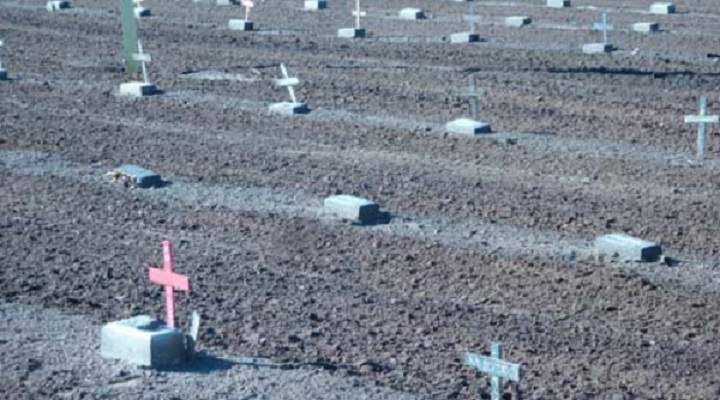When an undocumented migrant dies trying to cross the U.S.-Mexico border, the clock begins ticking. If the body is found before it has decomposed or been eaten by animals, investigators can determine the person’s weight and find scars or tattoos that might aid in identification. There’s also a better chance that clothing and personal items will be found.
Reineke collected data from consulates – including paper records – and took reports from families.
Colibrí, a nonprofit that grew out of this work, receives as many as 60 reports from families each week and also collects missing-person reports from consulates, nonprofits, journalists and BORSTAR, the Border Patrol’s search-and-rescue unit.
In 2008, the body of a young woman was brought in to the Pima County ME’s office. Found with the body was an ID card, and the face of the woman matched the photo on the ID, which also had a name. Despite all this, Reineke was unable to locate the woman’s family.
Family members may not file a missing-person report because they are estranged from the relative, involved in the drug trade or too scared, because of their own undocumented status, to make a report.
“A Mass Disaster”
Kate Spradley knows all too well the challenges of unidentified remains. A forensic anthropologist at Texas State University, she is conducting an analysis of the remains of 65 unidentified border crossers exhumed from Brooks County’s Sacred Heart cemetery.
The project, she said, is “a mass disaster that was dropped off at our lab.”
Texas state law requires DNA sampling of all unidentified remains, but the law, Spradley said, is rarely enforced.
Texas has 254 counties, only 13 of which have medical examiners, and those examiners serve only their own counties, Spradley said. There are three medical examiners in the border area. An autopsy of unidentified remains costs about $1,500, plus another $1,500 for transport.
As a result, no one knows for sure how many unidentified border crossers are buried in Texas cemeteries.
(Amy Roe is the reporter for Equal Voice News. Maria Rigou, the social media marketing manager for Equal Voice News and the Marguerite Casey Foundation, contributed reporting).



